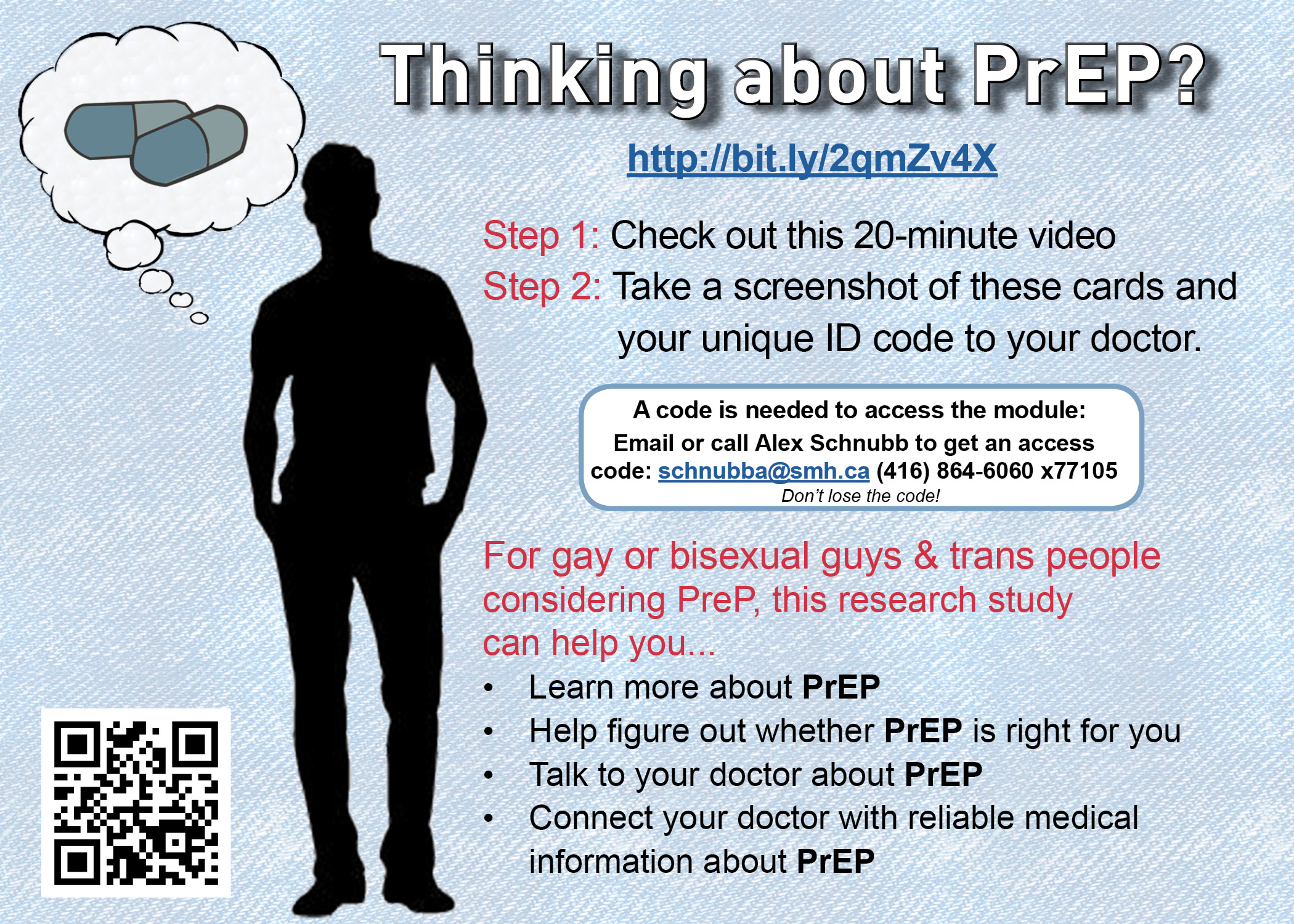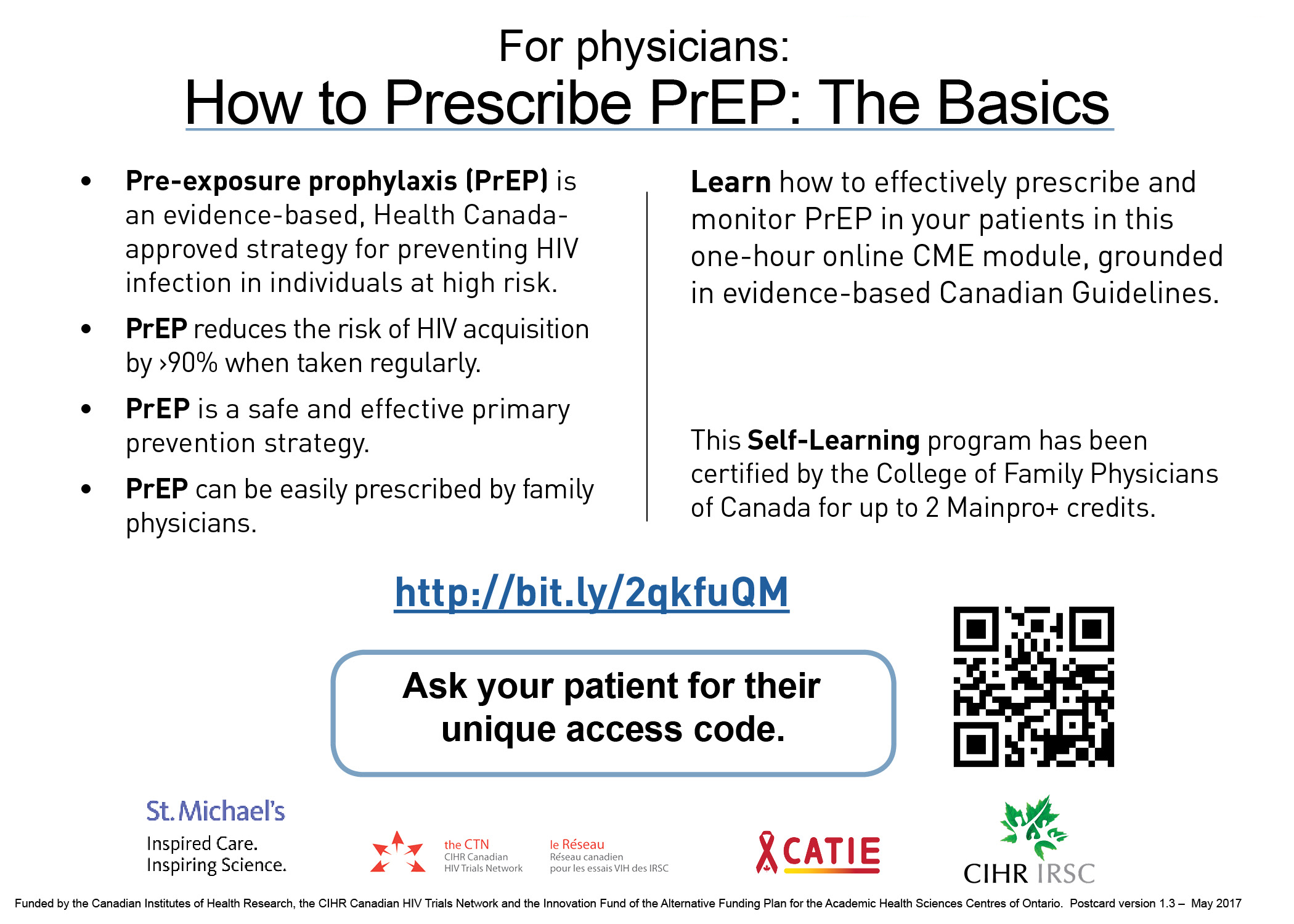At present, PrEP is mainly being prescribed in a ‘centralized’ way – that is, by a limited number of specialist physicians with expertise in antiretroviral medications and HIV care. However, there are not nearly enough such physicians to meet the large and growing demand for PrEP. Further, reliance on these specialists is costly and detracts from their ability to care for those already living with HIV. To sustainably and efficiently deliver PrEP to high-risk men who have sex with men at the scale needed to achieve public health impact, we posit that PrEP delivery should be decentralized by harnessing the skills of family physicians (FPs) and sexual health clinic nurses. As a first step towards this vision, this study will determine the feasibility of two corresponding interventions, each aimed at adapting PrEP delivery as part of a combination HIV prevention approach, to a new practice setting:
a) Dissemination intervention: We will empower patients to link their family physicians (FPs) with evidence-based, accredited online continuing medical education (CME) about PrEP using an innovative ‘Patient-Initiated CME’ (PICME) approach to knowledge translation. The CME will explicitly advise integrating PrEP with other biomedical/behavioural prevention approaches.
b) Implementation intervention: Since not all at-risk individuals have an FP, we will pilot ‘nurse-led PrEP’ in two sexual health clinics operated by Toronto Public Health under a Medical Directive.
The goal of this study is to gather preliminary feasibility and implementation outcome data on these two complementary strategies for decentralizing PrEP delivery to Toronto MSM as part of a combination prevention approach.
Interested in participating? Click here to contact the research coordinator and receive a code to complete either the patient or provider module.
This study was made possible through grants from CIHR and the AFP Innovation fund.


